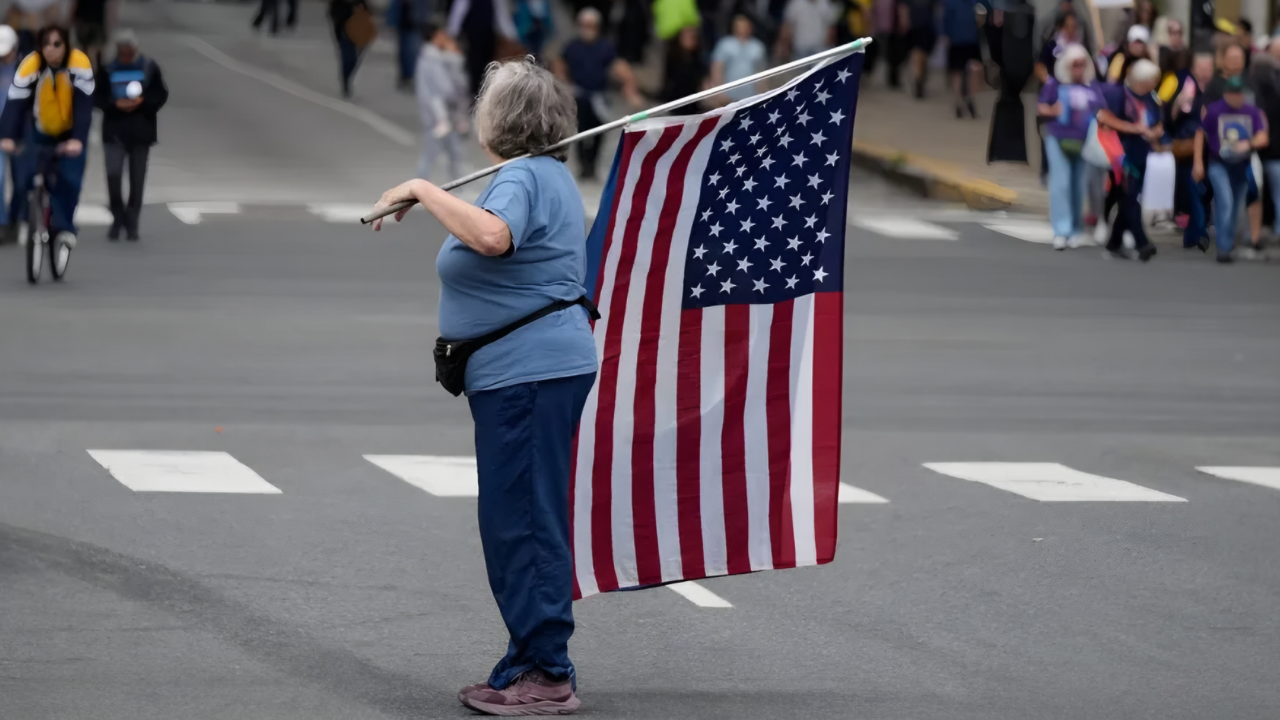
A record 7 million Americans took to the streets on October 18, 2025, in what became known as the “No Kings” protests — a sweeping wave of demonstrations spanning more than 2,600 locations. The protests erupted in opposition to President Trump’s immigration policies and the deployment of National Guard units along the U.S. border. But as the crowds surged, attention quickly shifted from the chants to the checkbooks funding the movement, prompting a Justice Department investigation that now reaches into the country’s most prominent philanthropic institutions.
Tracing the Money

The Department of Justice announced on September 25 that prosecutors would begin probing philanthropic networks suspected of financially supporting protests. The inquiry zeroes in on donations from the Open Society Foundations, accused of channeling millions into organizing efforts.
Investigators are examining whether this unprecedented mobilization was a genuine grassroots uprising or a carefully financed campaign orchestrated by elite donors. “We’re going to follow the money and hold those responsible accountable,” President Trump said in a statement announcing the probe.
Confirmed tax records link Open Society Foundations to $7.6 million in grants to Indivisible — a key organizer of the protests — between 2017 and 2023, including a $3 million grant in 2023. Additionally, viral social media posts and partisan blogs have circulated unverified claims alleging that the Ford Foundation contributed more than $51 million in grants connected to protest activities, with additional contributions reportedly funneled through the Rockefeller and Tides foundations and the consultancy network Arabella Advisors.
However, these broader funding allegations have not been independently verified by major news organizations or official disclosures. This complex web of funding has reignited debate over whether philanthropic giving amplifies democratic expression—or distorts it.
Protests, People, and the Politics of Pain

While federal agencies trace financial trails, the movement itself was shaped by the experiences of ordinary Americans. Demonstrations remained largely peaceful, though approximately two dozen arrests were reported in cities including Los Angeles and Denver as police placed downtown areas under heightened security.
Across the country, educators and activists voiced anguish over the toll of immigration crackdowns. Similar personal accounts fueled demonstrations in cities nationwide, reflecting widespread concern over family separations and enforcement actions.
Grassroots groups such as Indivisible and major labor unions coordinated the events, marking a notable alliance between organized labor and civil rights activists. Analysts say that dynamic has not been seen on this scale since the immigration marches of 2006. Political observers note this level of coordination across class and geography represents a signal moment in contemporary activism.
From the Streets to Congress

The administration’s response quickly broadened beyond the DOJ. A new White House memorandum instructed the IRS and Treasury to ensure that tax-exempt organizations were not bankrolling political unrest. Senator Ted Cruz, who had introduced related legislation in July 2025, continued to press for tighter reporting rules on contributions linked to protest activities.
“These measures are about transparency,” Cruz said on the Senate floor. But detractors argue the crackdown risks chilling legitimate dissent. The Open Society Foundations issued a statement rejecting accusations of funding political violence, warning that “government efforts to limit nonprofit speech threaten democratic participation.”
Conservative research groups estimate that hundreds of millions of dollars have flowed from billionaire-backed networks into activist causes since 2020, reflecting a profound shift in the financing of social movements. Political observers note similar dynamics abroad: in Europe, philanthropy has driven environmental and migrant rights movements but also provoked surveillance and legislative backlash. The U.S. is now experiencing similar tensions.
A Shifting Battlefield for Nonprofits

As scrutiny mounts, leading foundations are revising their grant-making strategies to distance themselves from direct protest organization. The Open Society Foundations affirmed that all grants under review were dedicated to “peaceful advocacy and human rights awareness.” Yet behind closed doors, many nonprofits are tightening compliance checks and emphasizing transparency to avoid falling afoul of federal regulators.
Policy experts warn that the investigations could have lasting consequences for the nonprofit sector. “Elite-funded activism isn’t new, but the current level of public skepticism is,” noted observers of philanthropic trends. “We may see a future where social movements must prove both their moral and financial legitimacy.”
The Road Ahead
The “No Kings” protests have amplified a national debate about the boundaries between democracy, money, and dissent. For millions of participants, the demonstrations embodied a fight for humane immigration policy. For investigators, they signal a test case in defining the role of private wealth in public mobilization.
As the DOJ probe unfolds, activists and funders alike face a fundamental question: can modern protest remain authentic when powered by multimillion-dollar backers? The answer may determine not only the trajectory of the “No Kings” movement but the future of progressive organizing in America.